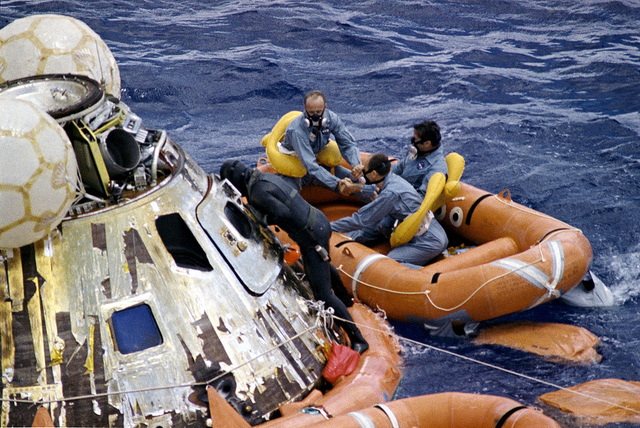A Life Boat in the Sea of Uncertainty
 Work is never perfect, family life is never perfect and neither is the interaction between them. Regardless of your expectations or control strategies, things go as they go. That’s just what they do.
Work is never perfect, family life is never perfect and neither is the interaction between them. Regardless of your expectations or control strategies, things go as they go. That’s just what they do.
We have far less control than we think. In the pure domain of physics the equations govern predictively – perturb the system with a known input in a controlled way and the output is predictable. When the process is followed, the experimental results repeat, and that’s the acid test. From a control standpoint this is as good as it gets. But even this level of control is more limited than it appears.
Physical laws have bounded applicability – change the inputs a little and the equation may not apply in the same way, if at all. Same goes for the environment. What at the surface looks controllable and predictable, may not be. When the inputs change, all bets are off – the experimental results from one test condition may not be predictive in another, even for the simplest systems, In the cold, unemotional world of physical principles, prediction requires judgement, even in lab conditions.
The domains of business and life are nothing like controlled lab conditions. And they’re and not governed by physical laws. These domains are a collection of complex people systems which are governed by emotional laws. Where physics systems delivers predictable outputs for known inputs, people systems do not. Scenario 1. Your group’s best performer is overworked, tired, and hasn’t exercised in four weeks. With no warning you ask them to take on an urgent and important task for the CEO. Scenario 2. Your group’s best performer has a reasonable workload (and even a little discretionary time), is well rested and maintains a regular exercise schedule, and you ask for the same deliverable in the same way. The inputs are the same (the urgent request for the CEO), the outputs are far different.
At the level of the individual – the building block level – people systems are complex and adaptive, The first time you ask a person to do a task, their response is unpredictable. The next day, when you ask them to do a different task, they adapt their response based on yesterday’s request-response interaction, which results in a thicker layer of unpredictability. Like pushing on a bag of water, their response is squishy and it’s difficult to capture the nuance of the interaction. And it’s worse because it takes a while for them to dampen the reactionary waves within them.
One person interacts with another and groups react to other groups. Push on them and there’s really no telling how things will go. One cylo competes with another for shared resources and complexity is further confounded. The culture of a customer smashes against your standard operating procedures and the seismic pressure changes the already unpredictable transfer functions of both companies. And what about the customer that’s also your competitor? And what about the big customer you both share? Can you really predict how things will go? Do you really have control?
What does all this complexity, ambiguity, unpredictability and general lack of control mean when you’re trying to build a culture of accountability? If people are accountable for executing well, that’s fine. But if they’re held accountable for the results of those actions, they will fail and your culture of accountability will turn into a culture of avoiding responsibility and finding another place to work.
People know uncertainty is always part of the equation, and they know it results in unpredictability. And when you demand predictability in a system that’s uncertain by it’s nature, as a leader you lose credibility and trust.
As we swim together in the storm of complexity, trust is the life boat. Trust brings people together and makes it easier to row in the same direction. And after a hard day of mistakenly rowing in the wrong direction, trust helps everyone get back in the boat the next day and pull hard in the new direction you point them.
Image credit – NASA
 Mike Shipulski
Mike Shipulski